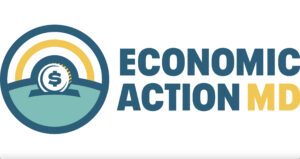 At the Digital Equity Research Center this year, we had the opportunity to lead a research project to gain a deeper understanding of the challenges and opportunities related to issues of digital equity and justice for residents across the state of Maryland. The study was commissioned by Economic Action Maryland. As their website explains, “Working at the local, state, and federal level, Economic Action Maryland unites individual advocates, poverty, civil rights, labor, and other public interest groups to press for policies that protect vulnerable Marylanders.”
At the Digital Equity Research Center this year, we had the opportunity to lead a research project to gain a deeper understanding of the challenges and opportunities related to issues of digital equity and justice for residents across the state of Maryland. The study was commissioned by Economic Action Maryland. As their website explains, “Working at the local, state, and federal level, Economic Action Maryland unites individual advocates, poverty, civil rights, labor, and other public interest groups to press for policies that protect vulnerable Marylanders.”
It was a privilege to be able to work with Economic Action MD to help advance their work on digital equity and justice issues for residents across the state.
Here is a bit from the Executive Summary from the report:
“This report presents findings from a study of the digital equity and justice challenges facing Maryland residents, as well as opportunities and policy recommendations to address these challenges. The research focused on gaining a deeper understanding of the landscape of issues related to providing universal broadband access and achieving digital equity and justice for all residents in Maryland during a moment of both unprecedented federal funding available to states through the Infrastructure Investment and Jobs Act and the potential for increased digital harms through both technological and market forces. The goal of this study is to inform Economic Action Maryland, and similar organizations, in their work to identify effective programs, practices, and policies that can be used to develop a digital equity policy agenda to advance justice and empower people across the state. The findings in this report are drawn from the analysis of qualitative data gathered during focus group sessions with a total of 61 participants in Baltimore City and across the state. In addition, interviews were conducted with 24 experts in Maryland and across the nation to gain their insights for the research.”
I am proud of this report, because I believe it is one of the few research studies that have sought to connect issues related to digital equity and digital justice for those most impacted by digital inequalities and those who work to support them.
Many thanks to the following individuals for their support with helping to make this research possible: Olga Akselrod, Stephanie Alphee, Jane Brown, Andrew Coy, Charlotte Davis, amalia deloney, Barbara Eucebio, Brandon Forester, Nicholas Garcia, Candace Hernandez, William Honablew, John Horrigan, Urmila Janardan, Christopher Kingsley, Leslie Margolis, Tacha Marshall, Jonathan Moore, Samantha Musgrave, Becca Quon, Chris Ritzo, Sabrina Roach, Houman Saberi, Claudia Wilson Randall, Hannah Sassaman, Marceline White, Akina Younge, Olivia Wein, and Corian Zacher.